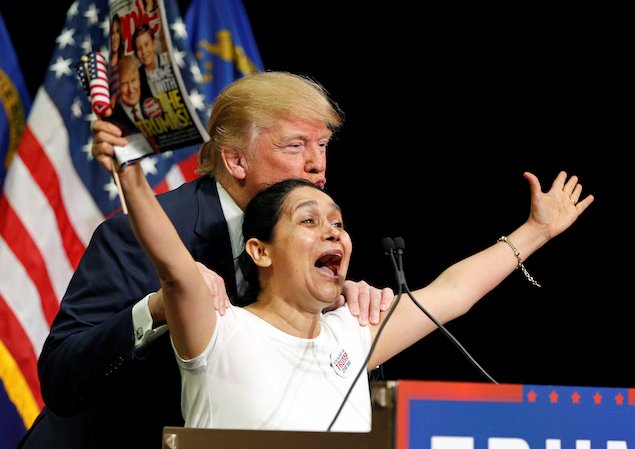You’ve heard me speak of the Law of Generations several times. It’s an important natural law in the development of America as well as individual houses inside America. It goes something like this:
It takes three generations for an immigrant “to be American” (“Ser Americano” as they say in Honduras.) Think of a hill that must be climbed, a new immigrant must first set out to climb it. (As we have seen in the past sixty years, with help from the government, many Americans have never begun to start that climb even after several generations here, so the clock on the Law of Generations has not yet begin to tick.)
It’s in the second generation that the house that was built in the first generation takes root and the immigrant family begins to take on more and more the appearance of being American. The habits, even language, of the Old Country, become the second habits and second language, and American English becomes the language spoken around the dinner table.
Then in the Third Generation the family is fully integrated as being American, at which time, depending on the wealth it has accumulated, (over roughly 90-100 years) it will begin sinking those roots more deeply, with its many branches going in every direction, some rising to even new heights, others sinking like a rock.
Today, most Americans of European descent are into at least into their third generation, and it is in the third and fourth generation that we find the majority of our professional classes who’ve mostly lost all memory of who their great-grandparents ever were. The shoulders they stand on. It’s in this period that people begin to take their station in America more or less for granted, and fold the blueprint for their house safely away in a box in the attic. Because of this ingratitude and oversight, few American houses make it through the fourth generation without some diminishing, but always to be passed or replaced by others still coming up the hill. It’s a process, and for two centuries America has been the better for it.
Today, most of our first and second generation start-ups come from the south, Latin America.
For instance, my family first came here in the 1680s (to Virginia), at least twelve generations, so we have as many branches as a pear tree, with fine ripe fruit at the top, and low-hanging fruit at the bottom, which easily falls or is plucked and eaten. My 95-year old aunt, a saucy Indianapolis Democrat politico, is the family genealogist, has bellowed for years that we are descended from English kings…to which, at least half a dozen times over twenty years, (because I like to tweak Democrats) I always asked, “Well then, how’d we all end up in a coal camp in east Kentucky, Your Highness?”
With this is mind, and some interest in finding the European derivation of his name, I checked out Donald Trump on Wikipedia. Donald Trump is Generation Three of the Trump (Drumpf) family in America, which is where the main branches of the tree really start to branch out. Donald’s next generation (the fourth) is where wealth means less than how well the new branches have fully learned the blueprint of being American. So the story of the Donald Trump House is only just beginning, as he has five kids, from ages 37 to 9. These will represent the legacy of his House, not his wealth.
But when the branches were very few, like most third generation sons, Donald was molded by the first two. A chip off the old block, even. For my tastes his grandfather Frederick Drumpf was the most interesting, as the patriarch-pioneer of every immigrant family usually are; for one, because they are the original shoulders the family will always stand upon, and two, they are often the ones, as time and sophistication move on, who the family most wants kept locked in the closet.
Frederick Trump came to the Pacific northwest in the late 1880s after emigrating from Germany. There he opened a successful hotel and restaurant for wayward women in Seattle, which would soon become the jumping off place for the Alaska Gold Rush, which Fredrick would chase north and do even better in separating miners from their grubstakes there, on behalf of another string of unreformed ladies of the evening.
Now I admit a partiality to such men, in part because my own grandfather got tired of three generations of farming limestone rocks in east Tennessee and headed to the Appalachian interior to take up work in the booming coal industry. The best read-uneducated man I ever knew, I would always visit him in his little 10 x 5 bedroom off the kitchen (he and my grandmother couldn’t stand the sight of one another) and always next to his bed he had an open Bible, a copy of Pliny’s Natural History, an 1872 Army Colt, a blackjack and a pair of brass knuckles. And we would speak of many things. I’m sure, when he first went to east Kentucky in the boom town days, he’s have taken some comfort at the same sort of restaurant Frederick Trump operated, and had I lived and found my way to Whitehorse in those days, Mr Trump’s would have been the first place I would have gone to seek employment.
Just so you’ll know how I feel about skeletons in the closet. (I wonder if Jonah Goldberg knows there’s likely a cat house in his family closet as well?)
Now these stories about Trump’s grandfather’s past aren’t new, as they were first reported years ago, but he only got his own Wikipedia page a few days ago, and I did note a certain turned-up nose in the reporting of how Frederick made his stash, also failing to note that at the time (1898) prostitution wasn’t illegal (the WCTU was still taking axes to saloons in Denver at the time), and being a first generation German of unknown religious background, Frederick Trump may not even have believed that providing temporary room & board for sporting girls and their male companions was immoral…by back east Presbyterian standards.
After returning to Germany to marry a nice German girl, Frederick returned to the US and settled in Queens, where he died from the flu pandemic in 1918. His wife and son, Fred (Donald’s father) carried on his new real estate business. Like old Frederick, young Fred was a natural entrepreneur, a self-made millionaire who build low-income housing as well as a successful grocery chain. He was a builder. Donald was the fourth of five children born (in 1946) to Fred and his wife Mary Anne, first generation from Scotland, and probably the Presbyterian in Donald’s life. Wikipedia went out of their way to mention a Justice Department consent decree against Fred Trump in 1973 because of a form of red-lining in his apartment renting, which, in fact, was very typical behavior of second generation Europeans who had never been around black people before. In fact, unlike southern racial attitudes (called “racism” by the Left), northern attitudes in the time of Dr Martin Luther King were entirely the result of first-and second generation Europeans in urban areas such as Chicago, New York and the steel cities of the Midwest. They were perfectly normal and would not have survived the next generation had it not been for the government cementing it into policy.
Donald was a child of wealth, but not a child of privilege, and his dedication to being the best builder he could be, and the tough education path he chose, rather than wasting his father’s money on rich kid frills, proves his nose was turned into the wind early. He had a financial head-start most others don’t have, but still had to earn his first job with his father. He came from two generations of entrepreneurial ambition, not luck, so Donald would have been a failure only if he had not loaded the Trump family tree with more of the same fruit.
I don’t think America has ever had a president straight out of the private sector but it’s clear the average American sector is fed up with what the political sector has to offer. It’s run its course, and we need a new direction. Long overdue. We liked Herman Cain in 2012 for that reason especially. And the fact that in many polls the top three GOP candidates are all from the private sector, or “outsiders” as the media likes to call them, proves this public sentiment has grown, not lessened, in four years.
But choosing someone from outside the political class does not come without risk. Successful people from the private sector carry with them their own self-made bag of troubles, for they are very sure of themselves, cocky and braggadocious, and used to being in charge, and often do not suffer fools lightly. They are not stupid nor cravenly diplomatic, and while they may be slow on the uptake about what is common knowledge to political wonks, they are quicker than most in knowing what needs to be done (situation analysis) and how to get there by the shortest most direct route. At least for the foreseeable future, they also know on which side their bread is buttered, and to whom they owe loyalty, and who it is they want to have their back. The people, not the Establishment nor the special interests. (This was Reagan’s great lesson.)
For both good and ill, they are men and women in full.
Compare then the self-made man and corporate captain. While people who rise to the top of the corporate world (at least in recent years) can become very wealthy, they still draw a paycheck and answer to higher bosses. This lack of absolute independence in decision-making and risks, while considered an asset in many quarters, will always place them (Wall Street) a cut below the self-made man in the eyes of America’s immigrant class (and should). First and second generation citizens most identify with, as the epitome of “being American” – the man who is his own boss, and in Sinatra’s words, “did it his way.” In fact, that has been the American dream since the beginning, especially since the ethnic immigrant explosion of the late 18th and early 19th Century. People from the political class, academic class and lawyer class, don’t like this type, for precisely that same reason. Karl Marx built a religion around hating them. Obama has tried to destroy them, for though Donald Trump is a billionaire, he is just at the top of the ladder of the private, small business sector.
This class always represents the free people in America best.
From every direction on the globe people came here knowing that their House could grow and prosper, not necessarily in their first generation, but in those first three generations, and what they wanted most was to be totally in charge of building that House, and to be in charge of creating their own wealth. To answer to no man. To be one’s own boss.
But to start, they first had to take jobs in the factory or in the fields, but who ever heard of a third generation factory worker or field hand…in America? Today we have third generation welfare recipients, third generation government workers, and third generation politicians, but in the small business private sector everything is still fluid, only it is getting smaller. Donald trump escaped a seine net that was first set while he was still in college.
But I see first generation Latino entrepreneurship everywhere, small, but certain to grow…if allowed.
When Donald Trump encountered that excited lady from Colombia last week, my immediate takeaway, since I’m older and can remember, is the way in which she used the word “Mister” as an honorific. “Mister Trump!” In America, if you owned your own business, much less a factory, you were a “Mister” up and down the sidewalk, to employees and the community at large, because you were what everyone wanted to be. No immigrant ever came here hoping their children would be a politician. They wanted their children to be a “Mister” Trump. No one ever said “Governor Bush” in that tone. Or “Senator Rubio” in that tone.
The Law of Generations is immutable, and it really only applies to America. Still no historian has ever explained Andrew Jackson in terms that he was a first generation Scotch-Irish, which explains every wrong thing about him. This Law explains more of America’s dark pages than any other phenomenon, making a liar of even nice guys like Bernie Sanders, who says we were born racist. We were born ethnic on a three-generation road. But it also defines our greatness and our exceptionalism, and umbrellas how millions of lost souls, the detritus of the world, could come here, and in three generations not only create great things, but be able to pass on the blueprint, imprinting a model that could be followed by millions of strangers for generations to come. Donald Trump may not be here today by accident.
So, I hope Donald Trump keeps a picture of his granddad hanging somewhere in his closet.




I really enjoyed this article.
There is a great deal of truth and wisdom in it.
There is another generational dynamic happening, the eternal one.
Even though this website is man focused, it applies to women as well.
http://www.artofmanliness.com/2012/07/12/the-generations-of-men-how-the-cycles-of-history-have-shaped-your-values-your-place-in-the-world-and-your-idea-of-manhood/
The article is about the Fourth Turning, a book about generations and cycles in American history. This cycle we are experiencing is the 4th, the crisis, and in it the generational alignment is at its most potent.
What we saw in the election was the attitude of the nomad generation coming to the fore, Gen X, the deplorables.
We know edgy danger very well. Stay aware, learn, and do your part.
I like the observation this author makes about our situation.
With all that faces us, this could still be the best time of our lives.
https://scholarsandrogues.com/2014/04/10/how-generation-x-will-save-the-world/ We will do our part, but there are no guarantees in the fourth turning. Ultimately, we will all succeed or fail together.
Thanks for those insights. I’ll keep the AOM insights and study them, but the problem is that they aren’t very useful for practitioners, only theorists. The just is still out on Millennials, I have my own theories, but right or wrong, theories that can be put into practice.